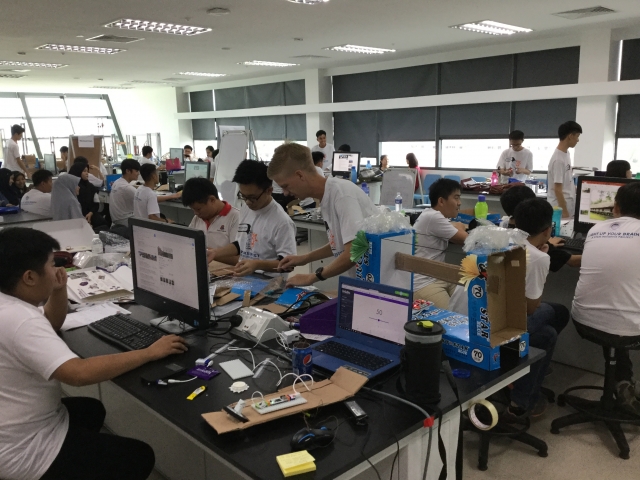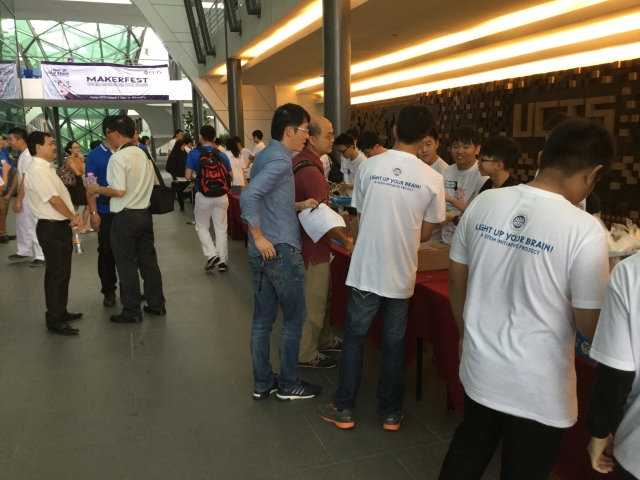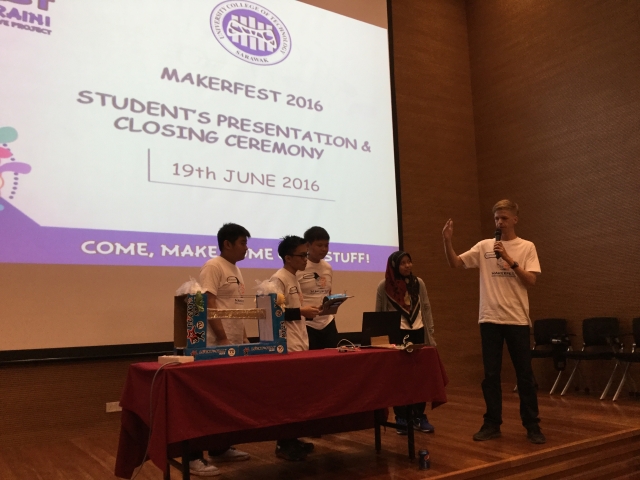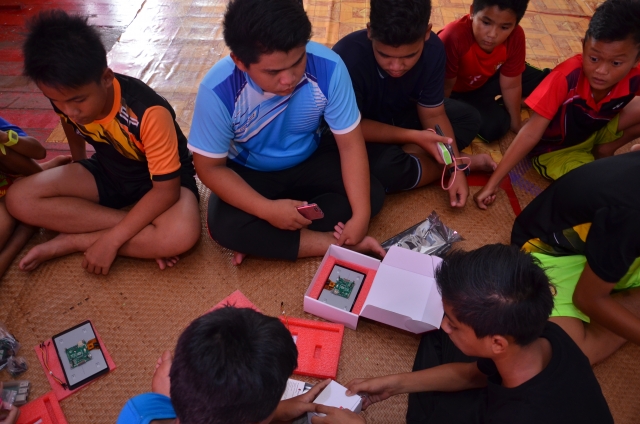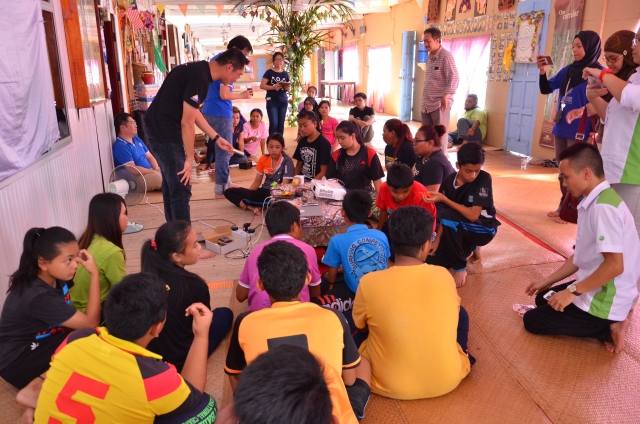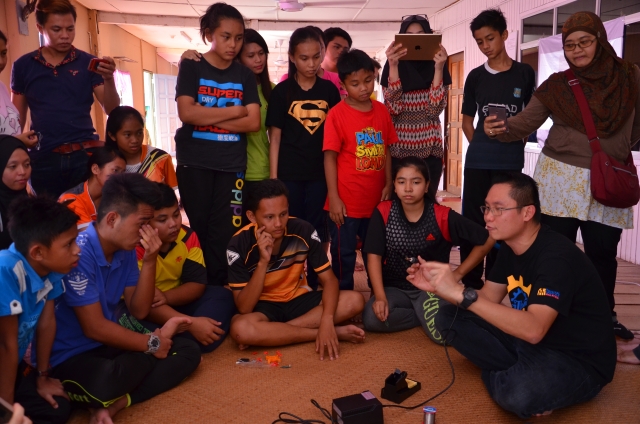Why Study at School of Computing and Creative Media, UTS?
University of Technology Sarawak (UTS) offers a unique teaching and learning experience to both staff and students. Touted as the most modern university campus in this region with its impressive futuristic-looking buildings and cutting-edge facilities, UTS offers an education environment and a campus life that is contemporary and chic. It also has the distinction of being the first and only university in Malaysia, if not in this region to have achieved a GBI Platinum Index, the highest certification rating of a Green Building.

Consistent with the strong vision and the physical appearance of the university, the School of Computing and Creative Media (SCM) offers a refreshed and state-of-the-art education programme to the millennials of today and tomorrow. The undergraduate degrees have been designed and structured fittingly to prepare students to become potential creators, innovators, entrepreneurs and problem solvers with the professional skills to work in a team or independently towards self-employment. The courses and student extra-curricular activities offered are heavily infused with elements of creativity, critical thinking, communication and collaboration i.e. the type of skills that are highly sought after by organizations in the 21st century.
True to its mantra of “Building a lifelong passion for innovation”, the education goals of the school is not merely to allow students to gain and regurgitate knowledge per se, but rather to provide them with the fundamental knowledge and the skills to “learning how to learn”, which means learning to think for oneself and in collaboration with others. More so in an area that is constantly changing at a breakneck speed, SCM provides an education philosophy that will help equip graduates with the ability to continuously re-invent and re-engineer themselves in order to keep up with technology advancement.
Even at the beginning of the programme, students are exposed actively to the culture of tinkering, creativity, innovation and entrepreneurship. The cornerstone of all our programmes is a new and unique learning space called the MakerFest, hosted at our Innovation and Maker Lab. At the beginning of each academic year (during the orientation week), all incoming students are invited to join in a MakerFest event, which typically runs non-stop over a 48-hour period. Here, they will be split and teamed up separately with their seniors; exposed to basic Design Thinking skills and are then asked to ideate and prototype solutions to solve societal, government and business challenges.
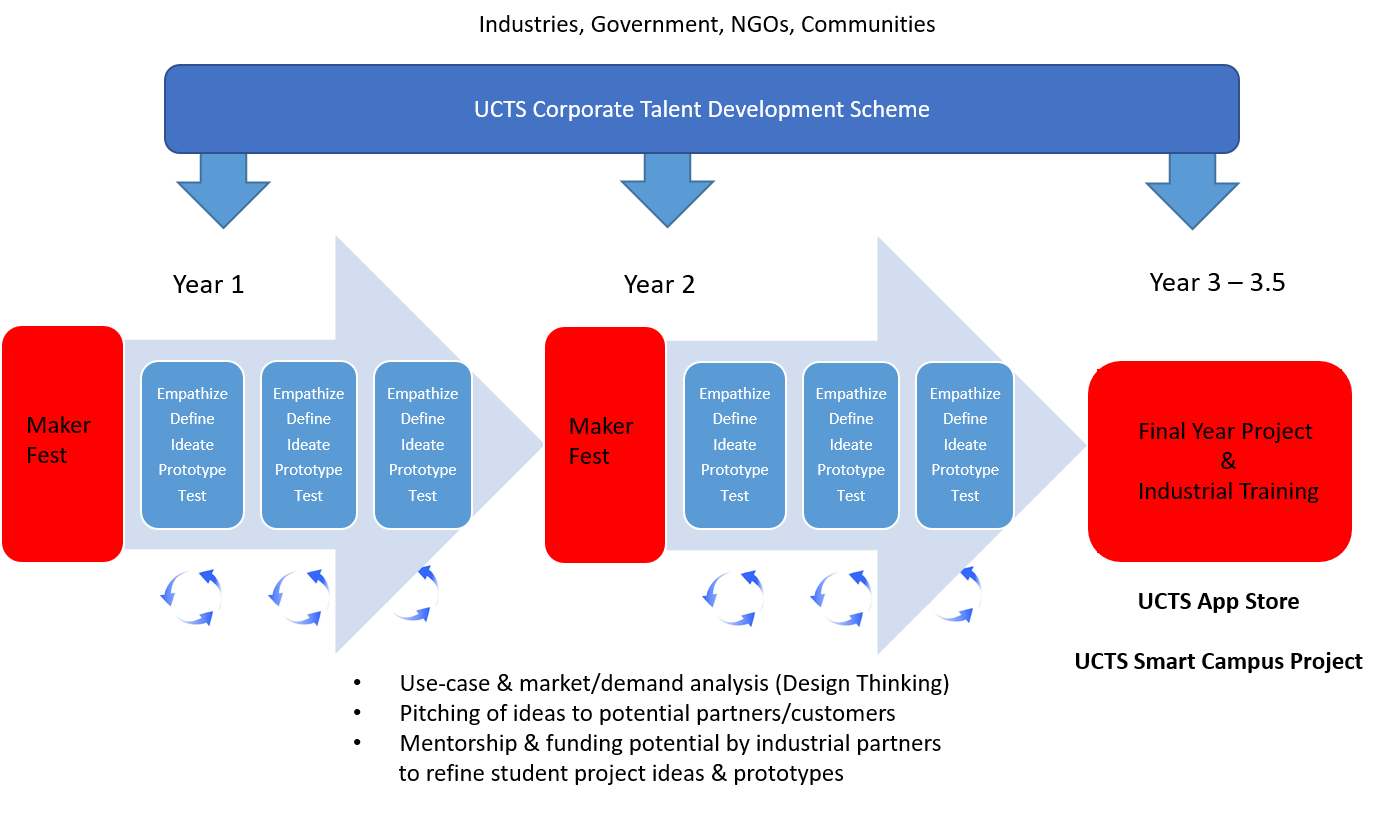
Figure 1: Maker event embedded in SoC programmes
An example and an on-going theme is how to develop a Smart Campus for UTS – student teams can openly tackle and prototype solutions like mobile apps, IoT (Internet-of-Things) systems, Virtual/Augmented Reality content, etc related to the administration or education challenges faced by the university. At the end of the event, they will be given the opportunity to present their ideas/prototypes and its value not just to the university management, but also to interested stakeholders from industry, government and the local/rural communities. Beyond each MakerFest event and before they reach their final year of study, student teams can subsequently refine and promote their project ideas further like pitching it to other potential users/customers, testing it out and getting useful feedback from them. This process can iterate several times over the first two years of their study which allows them to obtain valuable experience and the opportunities to improve their communication/presentation skills, teamwork, ethics and problem-solving skills.
The Maker event also provides students an overview of the computing space and a harbinger of what they would be covering in the formal classes. It helps them to select courses that can help them to further their project ideas and interests, bringing them closer to the market or to commercialization, for example. Each Maker event that the students participated in will give them better and deeper insights into their field of interests, sparking project ideas that can lead or become transformed into their Final Year Thesis projects or serve as their Industrial Training work, gaining precious market/business perspectives, communication and collaboration skills along the way, or even attracting funding opportunities from interested parties from industry, government and other stakeholders.
Our programmes also emphasize community engagement and outreach to develop students social and communications skills. Assisting the primary and secondary schools in STEM Learning and Computational Thinking (a core subject now in our national schools) through the introduction of the latest digital education technology is one of the core training services and research activities of SCM. Students, especially those that have gained enough training and experience from our internal MakerFest events will be offered opportunities to assist SCM lecturers in running Maker events for schools and the local/rural communities as part of our efforts to promote STEM Learning. They could also be expected to help in running training courses for Computing teachers from time to time.
Join us in learning, exploring and advancing new exciting frontiers of the digital and creative design world.

